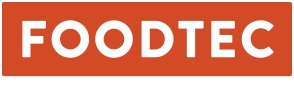If you haven’t had a chance to read up on the latest in industry news this past week, we’re here to catch up you. The NDP Group released its latest report – with some positive findings. It revealed that while total U.S. foodservice traffic remains flat, fast casual restaurant chains have been experiencing growth both in units and customer visits for the last decade. Claiming just 8% of total restaurant visits, the fast-casual sector is quietly plowing ahead and according to the NPD Group its total unit count is up one percent from last year and more importantly, traffic is up by 3%.
So, what’s driving this growth? A combination of factors, namely consumers appetite for healthier menus options, their desire for technology coupled with convenience and fast casuals who can aptly cater to those demands.
As recently as 15 years ago the idea that you could grab a nutritious, healthy and still tasty meal from a drive-thru or fast food restaurant was unheard of. But consumer attitudes regarding the link between diet and health have shifted and now there is a demand for fresher, greener menus with consumers lining up for responsibly-sourced salads and grain bowls with increasing regularity. What’s interesting is that the percentage of Americans who identify as vegetarian or even vegan hasn’t increased drastically, according to a 2018 Gallup poll, but sales of plant-based food are climbing. Per data collected by Nielsen and the Good Food Institute, the category grew 8.1% between 2016 and 2017. So, while consumers aren’t necessarily giving up meat and other animal products completely, they are hungry for healthier alternatives.
In previous research, the National Restaurant Association has also found that 76% of adults return to restaurants offering healthier choices with Nielsen reporting that about one-third of consumers will pay more for healthier ingredients. Not surprisingly, fast casual’s like Sweetgreen, Dig Inn, and Zoe’s Kitchen who cater to this new generation of consumers by offering healthier, tastier and even meat-free options have been sweeping up funding and expanding at a rapid rate in this past year.
The report also goes to on to highlight that moderate sales growth has meant that more restaurant operators have and are focused on getting additional, incremental sales and traffic gains and have turned to technology to help. “There’s a whole new variety of different venues by which typical operators can explore the application of technology against their operation to increase productivity and efficiency… with applications for back-of-house and front-of-house efficiencies as well as externally with consumer-facing engagement tools.” Hudson Riehle, Nation Restaurant Association Senior VP.
In fast casual, 62% planned to make such investments, in customer-facing technology — including digital ordering and payment and delivery models — this year. With the right tools in place like flexible pricing, digital menu boards & kiosks; operators are in a stronger position to create an environment where it is easier to nudge and incentivize the consumer to spend more.
While the sector has a long way to go before it eats up a significant amount of market share compared to traditional quick service restaurants and the goliath-like size chains of McDonald’s and Taco Bell, one thing is clear, fast casuals that demonstrate a commitment to innovation and understand the mood of the consumer are capturing the attention and spending power of the growing cohort of health-conscious consumers.
The NRA State of the Industry report is available to association members and available for purchase to non-members.




